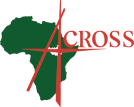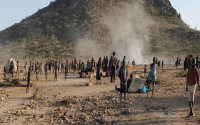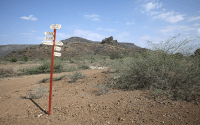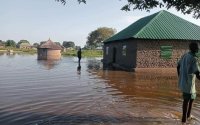Transforming Livelihoods through Youth Empowerment and Employment in Lakes State, South Sudan.
Lake State has a turbulent and frequently violent past. Armed conflicts over resources such as water and grazing area persisted after South Sudan gained independence in 2011. But since 2021, when H.E Rin Tueny was appointed the governor of Lake State, there has been a noticeable decrease in gun violence and this improved the security situation of Lake State in the past two years which has boosted developmental activities, Education, improved health care services and free trade within the State. Road abuses/attacks, cattle raiding’s have subsided in the recent years as a result of good leadership of the current State governor and this have attracted many implementing partners to come into rescue of the vulnerable communities in dire need of support. NGOs both international and local and UN agencies played greater roles in supporting the state government in provision of the services to the vulnerable communities across Lake State. The State government and line ministries works in good collaboration with implementing Partners. This has increased state-wide free trade, better health care services, and education especially skills development and livelihood programs, among other developmental initiatives. However, the local economy has been impacted by the hyperinflation, which has had an impact on vulnerable communities of Lake State. For example, prices in Lake State marketplaces, particularly in Rumbek, are three times more than in Juba which a low-class earner cannot afford.
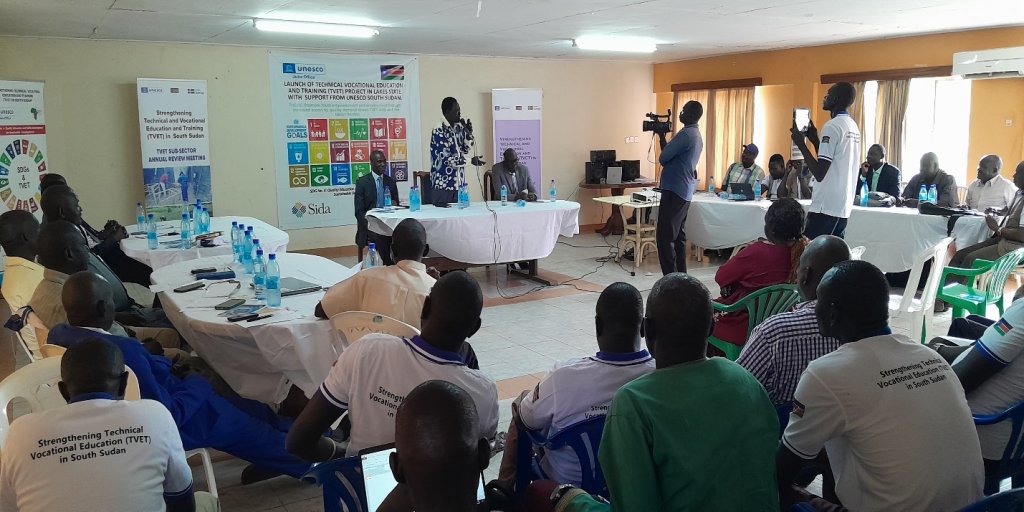
This article covers the funding ACROSS received from UNESCO for implementing technical vocational Education and Trainings which equipped the vulnerable youth of Lake State with skills and improved their livelihoods. The training aimed to reduce unemployment and boost livelihood among vulnerable youth from poorer families through strengthening gender responsive governance, quality and relevant of TVET system in Lake States, including strengthening environment and climate change awareness and adaptation capacity to reduce vulnerability and incident of internal communal conflict. The training contributed to achieving gender equality by improving access to TVET for young women and girls and breaking through gender stereotypes concerning their role in society in Lake State.
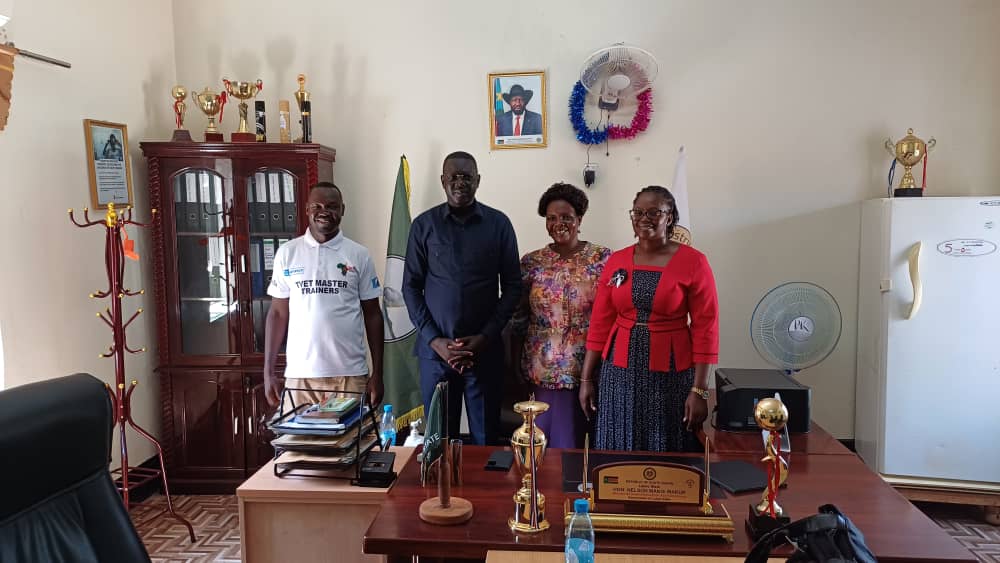
The Youth Empowerment project helped to motivate female youth to participate in male dominated TVET sectors based on their capacity and interest. The project achieved milestone in Supporting SDG 5 on gender equality, which in turn supports efforts to eliminate harmful gender norms and values that incite conflict, as well as discrimination and violence against women and girls. Through improving gender-responsive governance, the quality and applicability of the TVET system in the Lakes States, and the environment and climate change awareness and adaptation capacity of the youth, ACROSS developed a project aimed at lowering unemployment and improving the standard of living for vulnerable youth from lower-income families. By expanding girls’ access to TVET and eliminating gender prejudices about their duties, the project advances gender equality. The project makes sure that, in accordance with their abilities and interests, young women are encouraged to engage in TVET fields that are dominated by men.
With UNESCO’s assistance, ACROSS enrolled 788 young youth in total from November 2023 to March 2024 (520 men [66%], 268 women [34%]) and 747 (485 M, 262 F) graduated successful and the graduation ceremony was attended by Hon. Minister of General Education and Instructions Hon. Awut Deng Achuil, the National undersecretary from Ministry of general Education and Instructions Hon. Kuyok Abol Kuyok, The Hon. Minister of cabinet affairs, Hon. State ministers of Lake State, UNESCO representatives, ACROSS and many other humanitarian actors on ground. Many youth were reached through work-based TVET training, mobile TVET training, TVET centers/institutes, and fair, high-quality TVET services. Many more accomplishments were realized through youth employment. Additionally, childcare support and financial aid were extended to female learners to hire baby seaters to take care of their children which allowed them to attend TVET classes without interference.
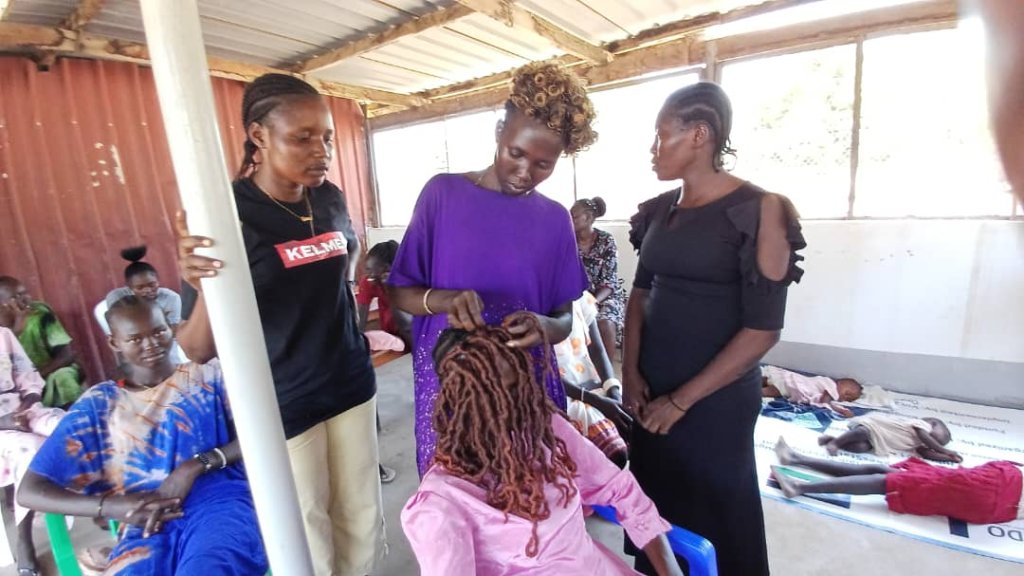
Furthermore, ACROSS trained 64 (53 male, 11 female) with TVET pedagogy and mentored and evaluated having the right skills and knowledge of scheme of work and lesson plans. At least ten instructors from each county participated in the sessions to verify the curriculums that were provided to them as teaching and instructional materials. ACROSS also piloted level one training for 75 (73 men and 2 women) who had received six months of advance instruction successfully and finished their course.
Start-up tools were given to all the 747 (485 M, 262 F) youth who graduated from five project counties of Rumbek Center, Rumbek East, Yirol East, Yirol West, and Wulu Counties. The youth in the trades of plumbing, basic electricity, and masonry received their tools individually, while the youth in the fields of tailoring, hairdressing, saloon for men, auto-mechanics, carpentry, livestock, fisheries, vegetable production, welding, computer, bakery/catering, and blacksmithing were grouped in groups of 2 members or 5 members.
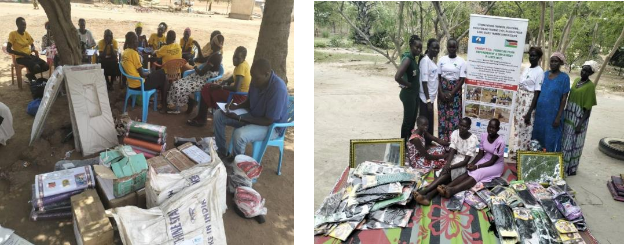
Additionally, to improve access to and control over resources in order to get past social and financial barriers, as well as to offer basic savings and loan options in a community that lacks easy access to formal financial institutions. Two Village Savings and Loan Association (VSLA) groups were formed in Rumbek Central Counties and two in Rumbek East Counties. This will assist TVET recipients who are currently employed in setting aside a portion of their income for the future.
In order to maintain the development of an empowered community, ACROSS has trained 449 people (257 men and 192 women) in business entrepreneurship and life skills. These skills help the youth transfer to the workforce, as they have previously acquired skills from various trades. They learned how to avoid debt and borrowing, handle customers, handle stress, and develop their communication skills in addition to these other business-starting and management abilities. ACROSS has also funded Peace Club programs in each of the five Counties to promote harmonious coexistence between the community and TVET beneficiaries.
